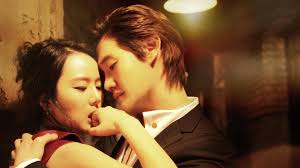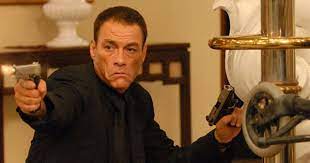🎬 Full Love (2010)

Review of Full Love (2010)
Full Love (2010), written, directed, and starring Jean-Claude Van Damme, is a unique and introspective departure from the action star’s usual genre fare. The film, also known by its working title The Eagle Path, is a deeply personal project for Van Damme, blending elements of drama, romance, and psychological exploration. With its unconventional narrative and introspective tone, Full Love offers a glimpse into Van Damme’s artistic ambitions beyond his established persona as an action hero.
Plot Summary: A Journey of Redemption and Love
The story follows Frenchy (Jean-Claude Van Damme), a war veteran haunted by his past and struggling to find peace in his life. Frenchy takes on work as a private driver, navigating a life of solitude and self-recrimination. His world changes when he encounters Sofia (Claudia Bassols), a woman who rekindles his desire to reconnect with humanity and confront his inner demons.
As the narrative unfolds, Frenchy’s interactions with Sofia and a host of supporting characters illuminate his internal struggles and his longing for redemption. Through flashbacks and emotionally charged sequences, the audience is drawn into Frenchy’s psyche, exploring themes of trauma, love, and self-discovery.
A Bold Shift for Van Damme
Full Love marks a significant departure for Jean-Claude Van Damme, showcasing a more vulnerable and dramatic side of his talent. As Frenchy, Van Damme delivers a raw and introspective performance, conveying the character’s pain and yearning with subtlety and emotional depth. This nuanced portrayal stands in stark contrast to the action-packed roles that have defined his career, revealing a different dimension to his acting abilities.
Claudia Bassols brings warmth and grace to her role as Sofia, serving as a counterbalance to Frenchy’s turmoil. Her chemistry with Van Damme is palpable, and their interactions anchor the film’s emotional core. Supporting performances, while not as prominent, add texture to the narrative, contributing to the film’s contemplative atmosphere.
A Visually Poetic Approach
Van Damme’s direction leans heavily on visual storytelling, employing a mix of stark realism and dreamlike sequences to convey Frenchy’s emotional journey. The cinematography captures both the grit of his present-day struggles and the ethereal beauty of his memories and aspirations. The use of light and shadow, coupled with evocative framing, creates a visual language that mirrors the character’s inner conflict.
The film’s pacing is deliberate, with moments of silence and introspection allowing the audience to fully immerse themselves in Frenchy’s world. This approach, while unconventional, aligns with the film’s themes of reflection and redemption, offering a meditative viewing experience.
Themes of Trauma and Healing
At its core, Full Love is a story about the scars of war and the path to healing. Frenchy’s journey is one of reconciling with his past, seeking forgiveness for his perceived failures, and rediscovering his capacity for love and connection. The film’s exploration of these themes is heartfelt and earnest, even if its execution occasionally falters.
The relationship between Frenchy and Sofia serves as a metaphor for hope and renewal, illustrating the transformative power of human connection. Their bond is portrayed with sincerity, highlighting the importance of compassion and understanding in overcoming personal struggles.
Challenges and Critiques
While Full Love is a bold and ambitious project, it is not without its flaws. The film’s non-linear narrative and abstract sequences may confuse viewers expecting a more traditional structure. Some elements of the story feel underdeveloped, leaving certain characters and subplots lacking resolution or depth.
The pacing, while intentional, may test the patience of audiences accustomed to Van Damme’s action-oriented films. Additionally, the dialogue occasionally leans toward melodrama, which can detract from the film’s emotional resonance.
A Passion Project with Heart
Despite its imperfections, Full Love stands as a testament to Van Damme’s artistic aspirations and his willingness to take creative risks. The film’s introspective tone and focus on character-driven storytelling reflect a deeply personal vision, offering a rare glimpse into the actor’s psyche and his desire to explore themes of vulnerability and redemption.
Legacy and Reception
Full Love has remained a curiosity within Van Damme’s filmography, with limited releases and screenings contributing to its enigmatic status. While it may not have achieved widespread acclaim or commercial success, the film holds significance as an auteur-driven work that defies conventional expectations.
For fans of Van Damme, Full Love offers an opportunity to see a different side of the actor, one that prioritizes emotion and introspection over spectacle. For those seeking an unconventional cinematic experience, the film provides a thought-provoking exploration of love, trauma, and the human spirit.
Conclusion
Full Love (2010) is an ambitious and introspective film that challenges the conventions of Jean-Claude Van Damme’s career. While its unconventional narrative and deliberate pacing may not appeal to all viewers, its heartfelt themes and raw performances make it a unique entry in his filmography. For those willing to embrace its meditative approach, Full Love offers a poignant and thought-provoking exploration of redemption, connection, and the complexities of the human condition